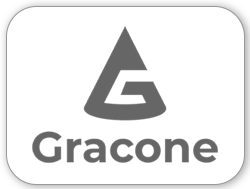
Engineers are a different breed. The average engineer is more skeptical and analytical than the average consumer. Traditional marketing techniques that are effective with average consumers will not work with engineers. Engineers are not impressed with fluffy, feel-good messages that come off as less-than-credible.
Engineers undergo a very demanding academic curriculum, and their jobs require they pay close attention to detail. Mistakes can result in schedule delays, cost overruns, and even loss of life. The old adage “measure twice, cut once” definitely applies to engineers.
Engineers rely on their acquired method of thinking, research, and judgment before making a decision.
Being measured decision-makers means engineers are naturally skeptical. They question every message they hear and compare it with their own experience and knowledge. Because of engineers’ healthy skepticism, traditional marketing tactics don’t work with them. The engineer’s purchase decision is more logical than emotional. Engineers rely on their acquired method of thinking, research, and judgment before making a decision.
Driven by logic, engineers use the power of information to educate themselves about a buying decision. It’s their rigorous attention to detail and calculated decision-making that make engineers so valuable during their company’s purchasing process. While engineers are not always the final decision-maker, they provide input into the buying decision. And if you are selling an engineered product (as opposed to a commodity), it is imperative that you gain the technical buy-in of the customer’s engineer. Clearly, winning over this group of influencers is critical. But how do you market to engineers?
To appeal to an engineer, you must offer what he wants: relevant information from a credible source.
John didn’t walk up to the podium and talk about why his heat exchanger is the best thing since sliced bread. Instead, he educated the audience on shell and tube heat exchangers in general. He talked about design criteria, size ranges, operating principles, parallel-flow vs. counter-flow configurations, pressure ratings, materials of construction, typical applications, and pros and cons of shell and tube vs. plate-and- frame heat exchangers. He provided useful, educational information to a group of engineers who were interested in learning more about the topic. By focusing on teaching—as opposed to selling—John succeeded in demonstrating himself as a Subject Matter Expert on the topic. The more John spoke and educated the engineers in the room, the more credibility he gained in their eyes.
If you want to sell something to an engineer, you can’t use traditional marketing tactics. Engineers tune out and disengage as soon as you launch into a sales pitch. You need to be subtle. You need to offer something of value to them in exchange for their time. You need to demonstrate to them that you are a credible source of useful information. You need to establish yourself as an expert they can rely on when they have questions or need help with a problem. PDH events accomplish all of these things and more.
Engineers are the people who produce the specifications and datasheets for industrial products.
Your competitors may already be using PDH marketing to position themselves as the “go-to” Subject Matter Experts in your industry. You don’t want to get left behind. It’s time to consider adding PDH marketing as another tool in your marketing tool chest.

